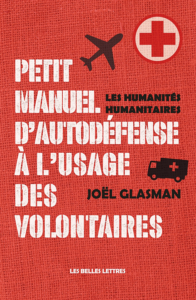
François Audet (dir.)
Éditions Kennes, 2021
(published in French)
Editor’s note
This book is unique amongst the essays interested in the humanitarian community of practice: it gives the floor to the professionals. Humanitarian aid workers have the privilege of entering the lives, and often the intimacy, of thousands of people. But surprisingly, bureaucratic imperatives mean that the most beautiful stories, at the heart of humanitarian action and human solidarity, are not highlighted, and remain confined to our memories.
These magnificent life stories unfortunately have no place in the humanitarian-spectacle of organisations that have quietly strayed from the very reason for their existence. We can see that communications on “humanitarian aid” are overwhelmingly dominated by brand image. By seeking at all costs to obtain funding through marketing tactics that are often guilt-inducing, organisations have moved away from the foundations of humanitarian work. In doing so, they provide an incomplete picture of this extraordinary profession.
This book seeks to make up for this “void”: to give a voice to the “human narrative,” to the human tragedy and to the values of solidarity of those who are confronted on a daily basis with epidemics, conflicts and natural disasters. These stories present our limitations, our dilemmas, and our biases and neo-colonial roots that influence our values. In the era of the humanitarian agenda of localisation and decolonisation, this book is therefore timely.
The exceptional people who agreed to share their memories in this collection all acknowledge the same thing: the heroic image of humanitarians circulated by Western organisations and the media is outdated. Instead, we need to focus on human relationships, beyond borders. It is in human contact that we find our motivations.
The stories that the authors present in this book are all based on experiences that sometimes reveal immense human sadness, sometimes renewed hope. But they all have something in common: the relationship with these women and men who have allowed us, momentarily, to enter their lives. These essays also provide a better understanding of the challenges of action in the wake of the Covid-19 pandemic.
In this collection, this gives rise to small moments of extraordinary lucidity. From Afghanistan to Niger to Gaza, these stories all have the same roots: the experiences of humanitarian workers with exceptional trajectories, who are witnesses to situations that have not yet found their place in reports by organisations or the media.
The director of this book, François Audet, is a member of the Scientific Council of the Humanitarian Alternatives review.


